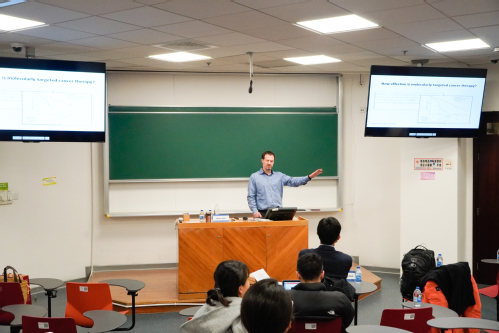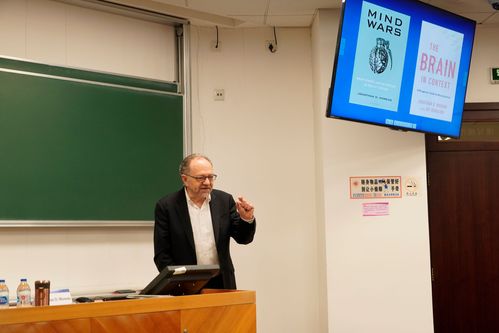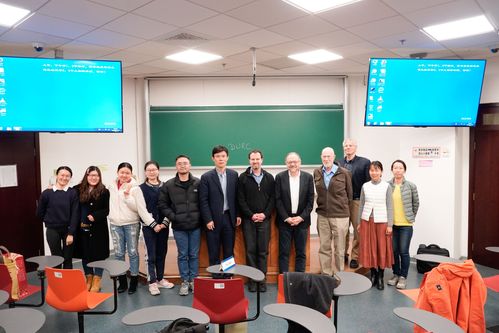
On 9th December 2019, the 27th workshop of the Fudan-LSE lecture series was held at Fudan University. The lecture was jointly organized by the Institute for Global Public Policy (IGPP), Fudan University and Fudan-LSE Research Center for Global Public Policy. Professor Steven Joffe and Professor Jonathan D. Moreno from University of Pennsylvania gave lectures entitled “Neuroscience, Ethics and Governance” and “Ethics, Genomics, and Precision Medicine”, respectively.

Professor Joffe first introduced precision medicine, a new method to prevent and treat diseases, which adopts personalized treatment measures according to different types of patients’ genes and currently achieves the most significant effects in cancer treatment. In the future, gene therapy may bring hope for diseases such as thalassemia, inherited immunodeficiency, spinal muscular atrophy, and hemophilia. Professor Joffe also expressed concerns about the ethics of precision medicine from four aspects: evidence, effectiveness, expense, and equity. The high cost of precision medicine may bring about equity issues that the rich and rich countries are more likely to benefit from this medical advance.

Professor Moreno’s speech included three parts: the rise of the modern neuroscience of the day, paradigms of basic and applied neuroscience, and the governance gap in modern neuroscience. Professor Moreno argued that we have entered the era of big neuroscience. In current medicine area, some newly produced drugs can regulate people's neural states in the way of boosting excitement, relieving tension, and even promoting trust and cooperation. However, the quick development of neuroscience technology also brings about some governance concerns. Professor Moreno pointed out that the existing international conventions do not address certain uses of neuroscience technology. Therefore, the abuse of neuroscience-related technologies should be alerted, and relevant governance strategies should be formulated.





